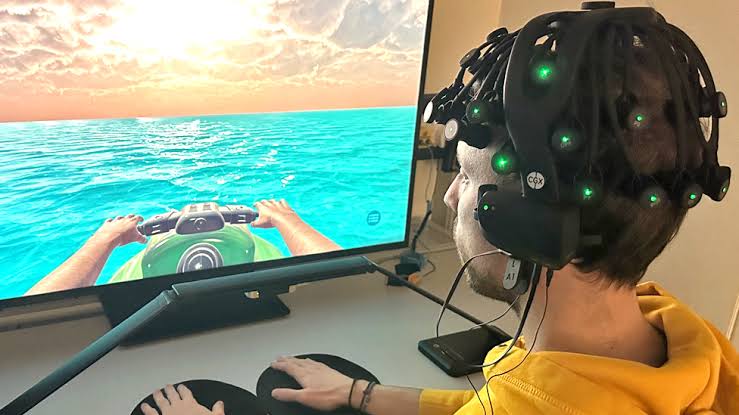
Fast-rising neurotech firm, Cogitat, is working on a system that may convert brain activities into actions without physical movement. The company says it is developing a prototype headset that allows different types of activities in virtual reality to play out. All the user has to do is think about them.
For instance, in a regular VR game that involves throwing punches or shooting balls, you have to make physical gestures to take actions in the game, but with this tech, you take all actions just by thinking about it. Many gamers stand to benefit from this tech hardware, but stroke and accident victims with severe or incurable brain injuries stand to gain the most. Not only will they be able to perform regular gaming activities, they will also get to control their phones and gadgets remotely.
Expect a Working Prototype In 2023
The next twelve months will be crucial to the neuro tech community as Cogitat revealed that its perfected prototype may be ready before the end of the year, regardless of whatever challenges.
Many professionals constantly seek more ways to learn about brain activities across race, sex, and age. Cogitat uses data from hundreds of volunteers in its trials to train the tech.
According to the team’s NHS consultant Allan Ponnianmh and Computer Scientist Dimitrios Adamos, Cogitat is currently testing the tech on various stroke patients and the results have been positively extraordinary. Both men corroborated that the tech will encourage many stroke patients to focus on rehabilitation exercises. We’re heading for a world where our technology will allow accident victims to imagine moving their limbs on screen and play VR games.
Neuralink is Currently Working On a Similar Concept
Other neurotech companies, including Neuralink, have similar hardwares under development. But unlike them, Cogitat says it wants its system to work as a headset on the head rather than a chip inserted into the brain. Neuralink’s chip concept is far gone, as the company has trial videos demonstrating how animals can play video games with their mind. However, the company is yet to test the chip in a human trial.
Featured image from disabilityinsider.com



